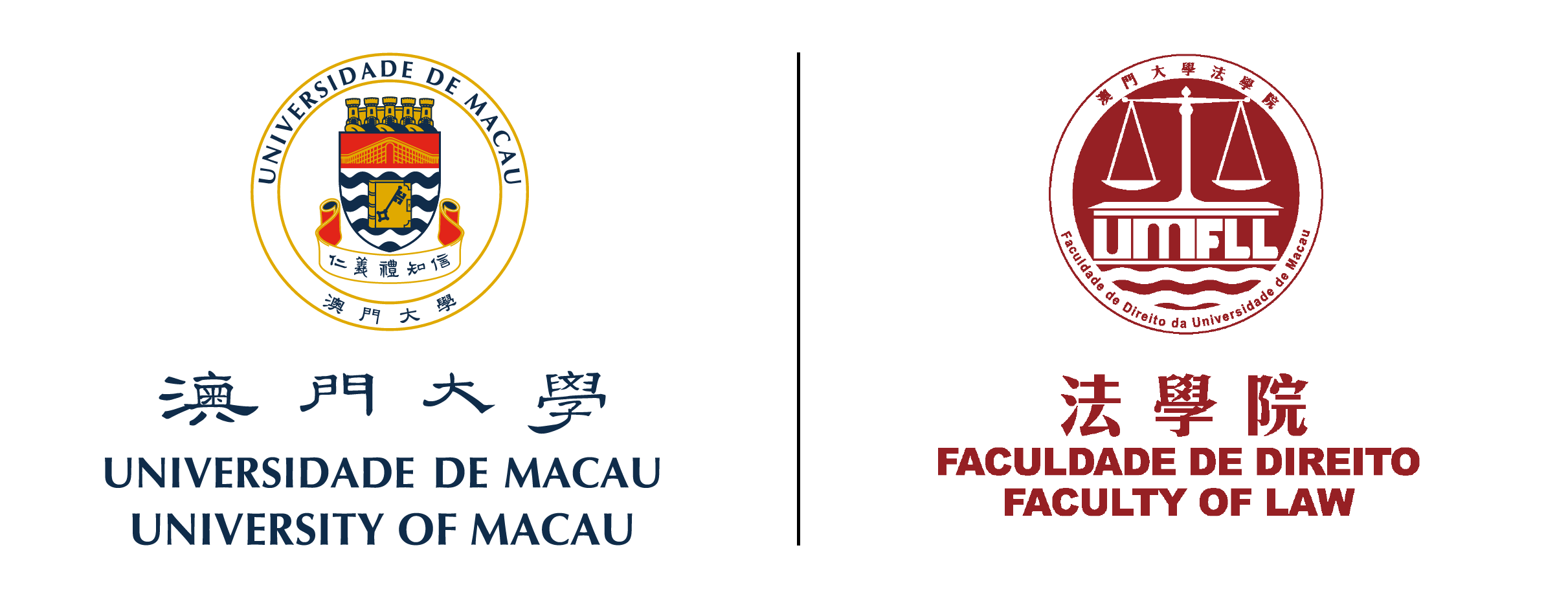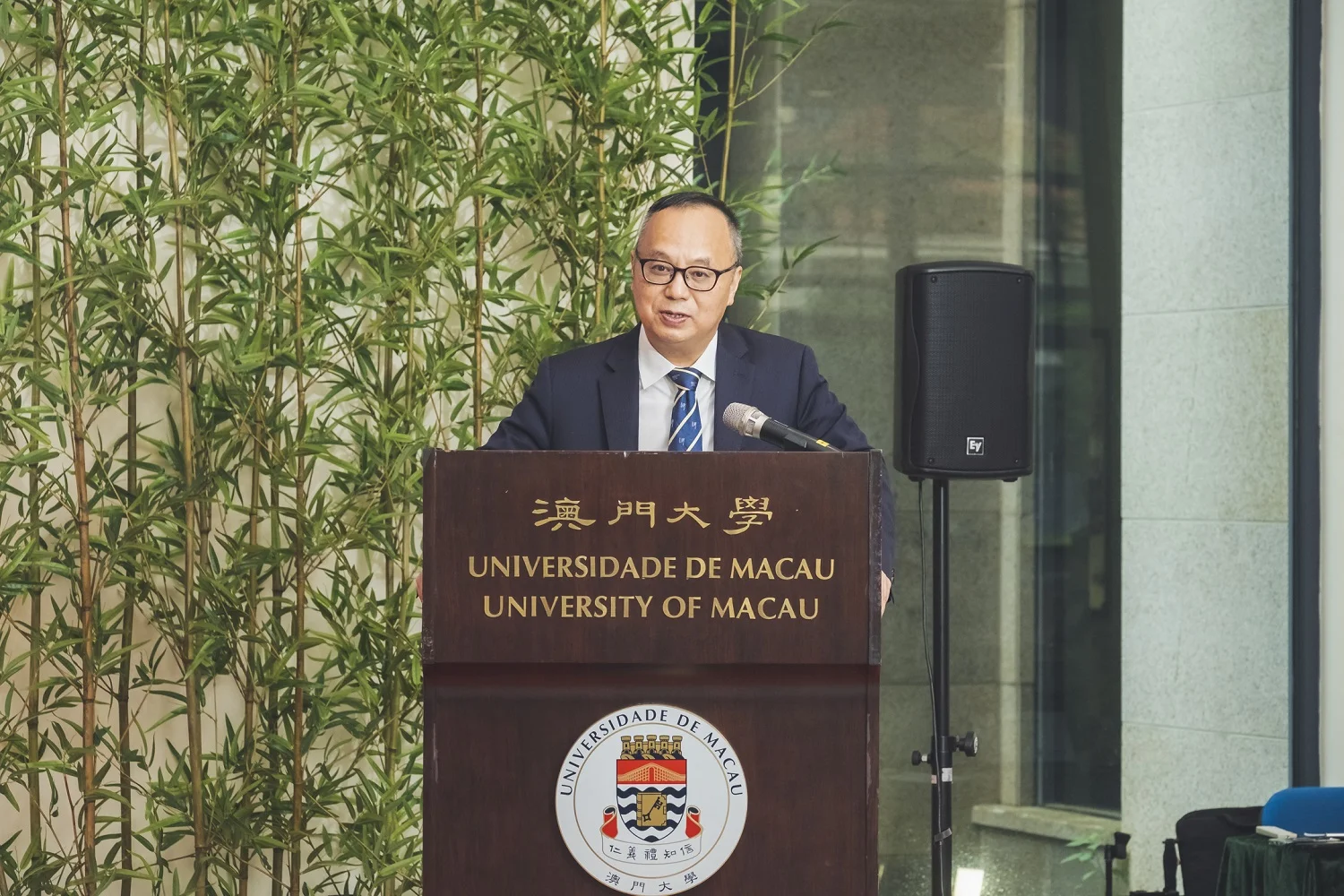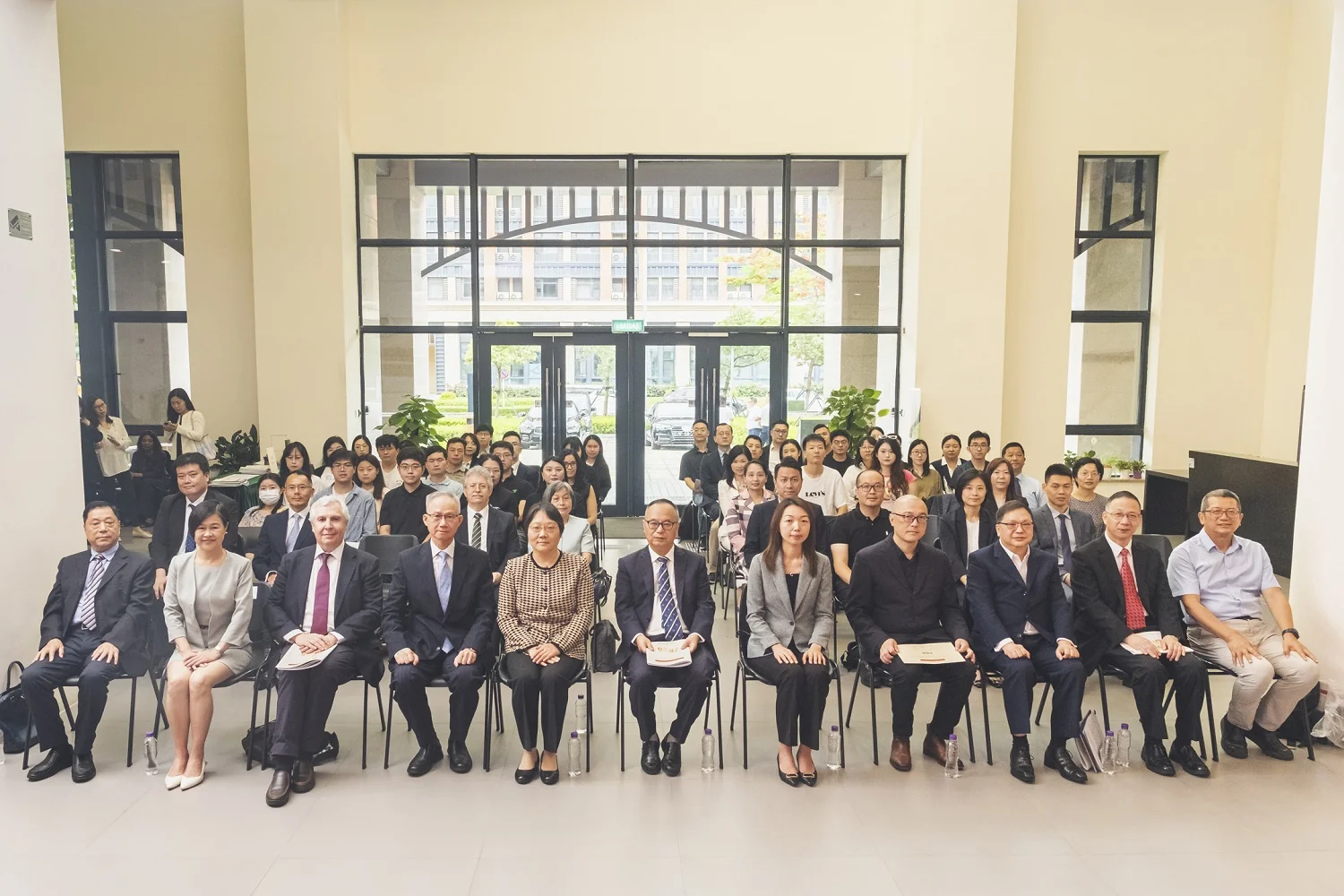To commemorate the 25th anniversary of Macao’s return to the motherland, the Faculty of Law and the Centre for Macau Studies of the University of Macau (UM) jointly organised the seminar ‘Celebrating the 75th Anniversary of the People’s Republic of China and the 25th Anniversary of the Macao SAR: Process of the Rule of Law and the 25th Anniversary of Macau’s Handover: Challenges, Achievements, and Future Directions’ to review the achievements and challenges of the legal system of the Macao SAR. The seminar brought together legal experts and scholars from mainland China, Macao and Portugal, professionals from legislative departments and judicial departments, legal practitioners, as well as UM faculty and students.
During the keynote session, guest speakers discussed the progress of the rule of law, Macao’s legal order, Macao’s mediation system, the challenges in legal education, and the path to modernisation and reform of Macao’s criminal law under the guidance of the Macao Basic Law. The seminar was then divided into two special sessions: ‘One Country, Two Systems and the Macao Basic Law’ and ‘Private Law’. About 20 scholars made presentations on topics including the implementation and enforcement of the Macao Basic Law, inter-regional mutual legal assistance in criminal matters, the enhancement of maritime law, the convergence of commercial laws between mainland China and Macao, cross-border mobility between Guangdong, Hong Kong and Macao, mental health and other related legal issues. They also engaged in in-depth discussions and exchanges with other experts and scholars.
Yonghua Song, rector of UM, said that as the cradle of Macao’s legal professionals and the only public university in the world to offer undergraduate programmes in Macao law, UM has been committed to cultivating professionalism and patriotism among its students over the years. The university has not only produced a large number of socially responsible and innovative legal professionals, but has also contributed greatly to popularising the Basic Law and fostering the ‘love the country, love Macao’ spirit. The university has also played a fundamental role in promoting patriotic education in the SAR by including the Constitution and the Basic Law in its general education curriculum, organising relevant training courses in cooperation with the Education and Youth Development Bureau, compiling teaching materials on the Constitution, and establishing the Macao Base for Primary & Secondary Education in Humanities & Social Sciences.
Leong Weng In, director of the Legal Affairs Bureau of the Macao SAR Government, pointed out that the Macao SAR Government has strengthened exchanges and cooperation with legal departments in mainland China and Hong Kong in recent years. With close communication and cooperation between Macao and Guangdong, the construction of the rule of law in the Guangdong-Macao In-Depth Cooperation Zone in Hengqin has progressed in an orderly manner. The two places have also explored the soft connectivity of legal rules and mechanisms, which has gradually allowed Macao and Hong Kong lawyers, tourism practitioners, construction and engineering professionals, as well as medical and pharmaceutical technicians from Macao to practise in the Cooperation Zone, thus promoting the deep integration between Macao and Hengqin. She hopes that different sectors in Macao can apply the rule of law in their work planning and problem solving, and explore the optimal direction and path for the development of the rule of law in Macao and the construction of the rule of law in the Cooperation Zone.
Tong Io Cheng, dean of the Faculty of Law (FLL) at UM, stressed that legal education in Macao is rooted in the Macao system and its mission is to train innovative legal professionals in the context of comprehensive law-based governance. It has three fundamental orientations: training legal professionals, bridging China and Portugal, and pursuing academic excellence. At the same time, legal education in Macao also faces five challenges: the transformation of educational philosophy, the decline in the birth rate, the advancement of technology, the professionalisation of the legal profession, and the integration of the legal system in the Guangdong-Hong Kong-Macao Greater Bay Area. He added that FLL will continue to forge ahead and contribute to the prosperity of legal education in Macao and the progress of a society governed by the rule of law.
Agnes Lam, director of the Centre for Macau Studies (CMS) at UM, said that Macao’s legal system integrates the characteristics of China and Portugal, which brings both advantages and challenges. Before the handover, the centre actively engaged in promoting the localisation of laws, organising discussions between scholars, and publishing research. After the handover, the centre has consistently engaged in promoting research on the legal practice of the ‘one country, two systems’ policy. In recent years, CMS has also taken part in promoting legal harmonisation and the mutual recognition of certificates and licences in the Greater Bay Area. In addition, the centre’s Journal of Macau Studies has published more than 200 legal articles since its first issue in 1988, covering a wide range of legal issues in the 40 years before and after the handover. She added that CMS will continue to uphold its mission of anchoring and pursuing research on society for the development of Macao.
Guests, experts and scholars attending the seminar also included Wang Heng, director of the Legal Affairs Department of the Liaison Office of the Central People’s Government in the Macao SAR; Vong Hin Fai, president of the Macao Lawyers Association; Jorge Bacelar Gouveia, professor in the School of Law of NOVA University Lisbon, Portugal; Fang Quan, dean of the Faculty of Law at the Macau University of Science and Technology; Leng Tiexun, director of the “One Country, Two Systems” Research Centre at the Macao Polytechnic University; Iau Teng Pio, associate dean of FLL; Jiang Chaoyang, director of the Centre for Constitutional Law and Basic Law Studies of FLL; Li Zhe, head of the Department of Macao Legal Studies of FLL; Lok Wai Kin, professor in FLL; Zhao Guoqiang, adjunct professor in FLL; and Jiang Yiwa, senior instructor in FLL.
| Source: Centre for Macau Studies |




